Filter News
Area of Research
- Advanced Manufacturing (1)
- Biology and Environment (3)
- Clean Energy (6)
- Computational Engineering (1)
- Computer Science (4)
- Fusion and Fission (2)
- Fusion Energy (6)
- Materials (3)
- National Security (3)
- Neutron Science (1)
- Nuclear Science and Technology (5)
- Nuclear Systems Modeling, Simulation and Validation (1)
- Supercomputing (6)
News Type
News Topics
- (-) Advanced Reactors (18)
- (-) Big Data (18)
- (-) Mercury (3)
- 3-D Printing/Advanced Manufacturing (49)
- Artificial Intelligence (21)
- Bioenergy (21)
- Biology (24)
- Biomedical (15)
- Biotechnology (3)
- Buildings (24)
- Chemical Sciences (21)
- Clean Water (13)
- Climate Change (28)
- Composites (13)
- Computer Science (55)
- Coronavirus (15)
- Critical Materials (13)
- Cybersecurity (9)
- Decarbonization (12)
- Energy Storage (47)
- Environment (58)
- Exascale Computing (4)
- Frontier (4)
- Fusion (17)
- Grid (23)
- High-Performance Computing (23)
- Hydropower (6)
- Irradiation (3)
- Isotopes (13)
- ITER (4)
- Machine Learning (12)
- Materials (68)
- Materials Science (53)
- Mathematics (1)
- Microscopy (20)
- Molten Salt (6)
- Nanotechnology (24)
- National Security (10)
- Net Zero (2)
- Neutron Science (41)
- Nuclear Energy (34)
- Partnerships (6)
- Physics (10)
- Polymers (14)
- Quantum Computing (6)
- Quantum Science (14)
- Security (4)
- Simulation (11)
- Software (1)
- Space Exploration (11)
- Statistics (1)
- Summit (8)
- Sustainable Energy (53)
- Transformational Challenge Reactor (1)
- Transportation (46)
Media Contacts
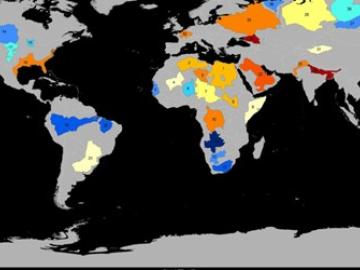
Groundwater withdrawals are expected to peak in about one-third of the world’s basins by 2050, potentially triggering significant trade and agriculture shifts, a new analysis finds.
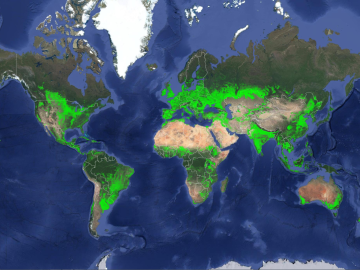
ORNL climate modeling expertise contributed to a project that assessed global emissions of ammonia from croplands now and in a warmer future, while also identifying solutions tuned to local growing conditions.

Anne Campbell, a researcher at ORNL, recently won the Young Leaders Professional Development Award from the Minerals, Metals & Materials Society, or TMS, and has been chosen as the first recipient of the Young Leaders International Scholar Program award from TMS and the Korean Institute of Metals and Materials, or KIM.

In the search for ways to fight methylmercury in global waterways, scientists at Oak Ridge National Laboratory discovered that some forms of phytoplankton are good at degrading the potent neurotoxin.

A partnership of ORNL, the Tennessee Department of Economic and Community Development, the Community Reuse Organization of East Tennessee and TVA that aims to attract nuclear energy-related firms to Oak Ridge has been recognized with a state and local economic development award from the Federal Laboratory Consortium.
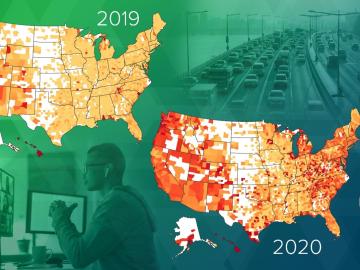
Researchers at Oak Ridge National Laboratory have empirically quantified the shifts in routine daytime activities, such as getting a morning coffee or takeaway dinner, following safer at home orders during the early days of the COVID-19 pandemic.

An Oak Ridge National Laboratory team developed a novel technique using sensors to monitor seismic and acoustic activity and machine learning to differentiate operational activities at facilities from “noise” in the recorded data.
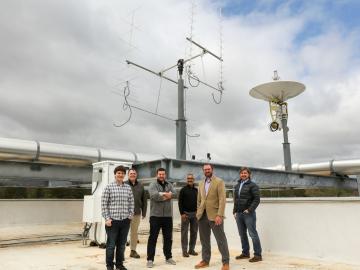
Oak Ridge National Laboratory is debuting a small satellite ground station that uses high-performance computing to support automated detection of changes to Earth’s landscape.
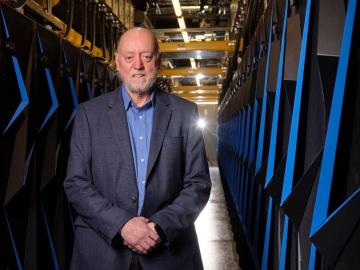
A force within the supercomputing community, Jack Dongarra developed software packages that became standard in the industry, allowing high-performance computers to become increasingly more powerful in recent decades.
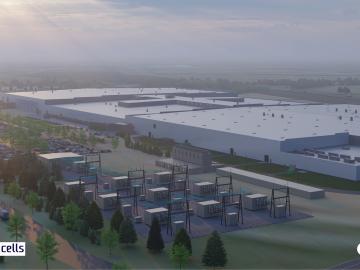
ORNL, TVA and TNECD were recognized by the Federal Laboratory Consortium for their impactful partnership that resulted in a record $2.3 billion investment by Ultium Cells, a General Motors and LG Energy Solution joint venture, to build a battery cell manufacturing plant in Spring Hill, Tennessee.




